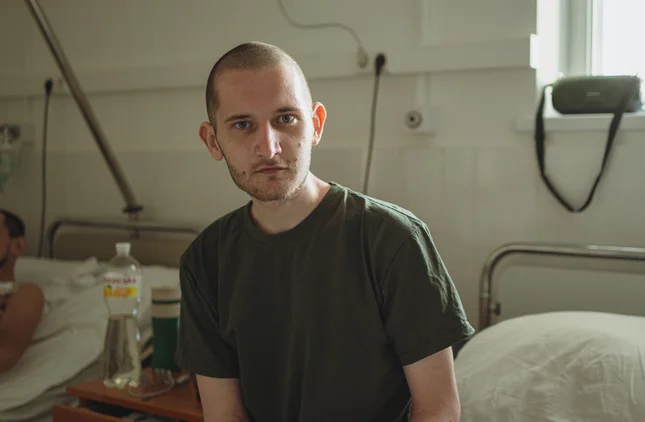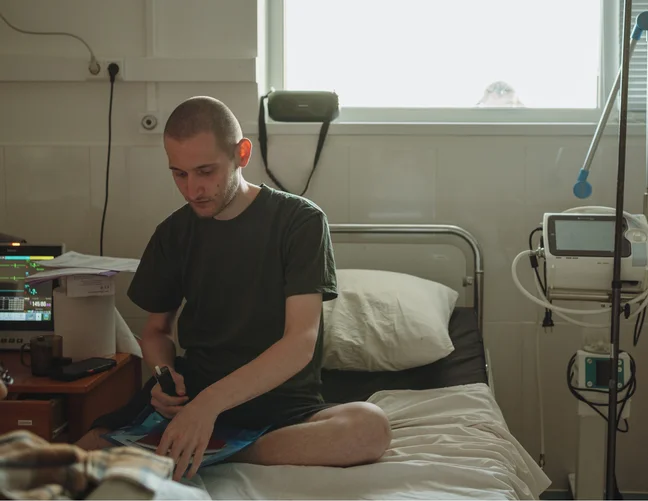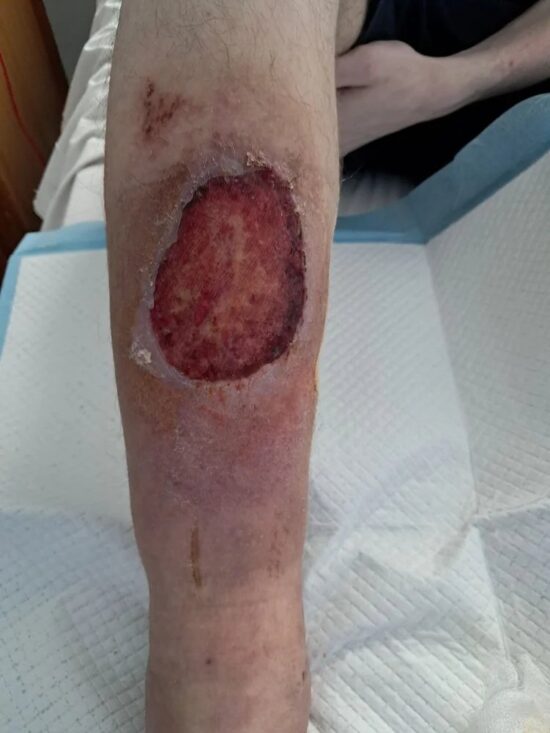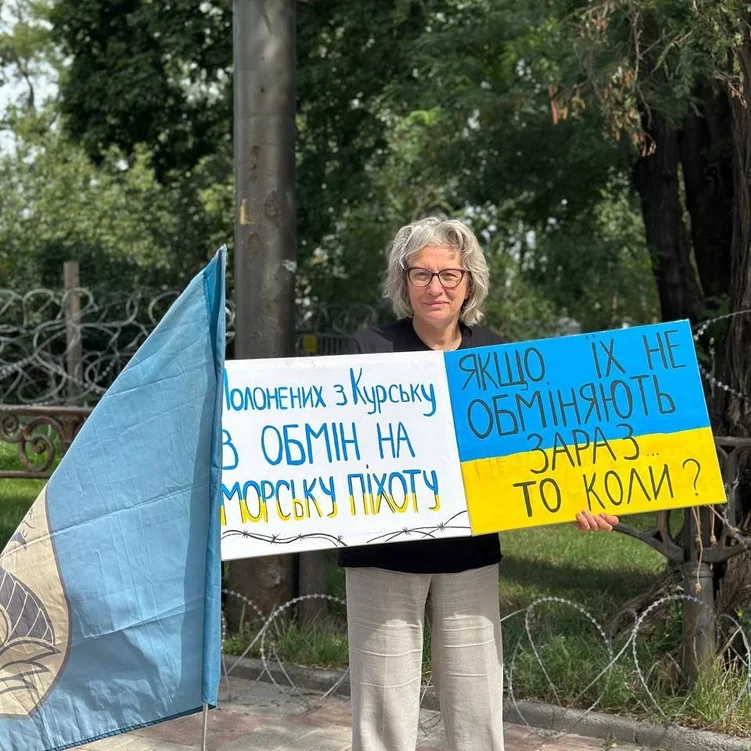Mariupol Defender reclaims voice and spirit after 2.5 years in Russian captivity
Ukrainian Marine Yura Hulchuk captured hearts nationwide after his release from Russian captivity, arriving home unable to speak or respond emotionally to his mother’s tearful embrace. Now, Yura has finally broken his silence and is making significant progress in his recovery.


Mariupol Defender Yura Hulchuk, a 23-year-old soldier from the 36th Marine Brigade, spent nearly two and a half years in Russian captivity before being released on 14 September 2024. His return was marked by severe physical and psychological trauma. Immediately after the prisoner exchange, Yura was rushed to the intensive care unit in a Kyiv hospital. He couldn’t eat or speak on his own, and he showed no immediate signs of recognizing those around him.
His mother, Milana, who had tirelessly fought for her son’s release, stood by his side, waiting for any sign of recognition. After three days, Yura finally acknowledged her face and voice. On the fourth day, an emotional breakthrough occurred – he cried and clung to her. Though a psychiatrist had warned that it could take a year for Yura to regain his ability to speak, he began talking just hours later, and his recovery accelerated rapidly from that point.

Yura’s time in captivity had left deep scars, both visible and hidden. His mother noticed his altered behavior, particularly when it came to eating. He drank boiling water without hesitation, a habit formed from being forced to consume scalding food in captivity.
When Milana asked about it, Yura recoiled, simply saying, “Nothing about the food,” a small glimpse into the larger horrors he had endured.
The mental toll of captivity was equally severe. Yura described the overwhelming sense of uncertainty and fear that dominated his time as a prisoner. He often wondered what had become of his family, whether his parents were safe, or even if the war had ended without his knowledge.
“It was tough to keep track of time. I didn’t know if the days I thought were my birthdays were real. Every day felt the same, but I tried to keep my spirits up,” he says.
The physical abuse in Russian captivity was brutal. Prisoners were starved, beaten, and forced to stand for long hours. Many developed severe dystrophy, with their swollen legs leaking lymph from unhealed wounds.

Yura’s mother, after learning the full extent of his suffering, struggled to process what her son had endured. “I cried the entire way home, and when I got there, I screamed and hit the walls. My child faced such unimaginable evil!” Milana says.
Milana had been an active advocate for her son’s release, spending months organizing protests. Beginning in June 2024, she spent six to seven hours a day demonstrating outside government buildings, demanding attention for prisoners of war. Despite suffering two heat strokes during the hot summer, she continued her protests, joined occasionally by other families of POWS from the 36th Brigade. They carried photos of those who had died in captivity and of the bruises and wounds inflicted on the survivors.

Yura’s release came as a surprise, and even after he was freed, he struggled to believe it was real. After being transferred to an airport with a black bag over his head, he was told he would be part of a prisoner exchange. He was given Russian rations, which only deepened his suspicion.
“The same hand that beat me with a wooden stick was now giving me food. I kept thinking, where’s the trap?” Yura later said.
Even after crossing into Belarus and receiving food rations from Belarusian officials, he remained on edge, unable to fully trust what was happening.
For Yura, the transition back to freedom was disorienting. His mind, conditioned by years of captivity, struggled to accept the reality around him. Even in Kyiv, surrounded by familiar faces, he felt as though he was in a dream. Slowly, over the course of several days, his sense of reality returned. Despite everything, Yura is determined not to forget his time in captivity.
“I took valuable lessons from it. You have to be very careful, not just with what you say but with what you think, he says.
Now recovering in a Kyiv hospital, Yura faces months of rehabilitation. After his stay in the intensive care unit, he will move to a rehabilitation center, where he will continue his recovery. Although the future is uncertain, Yura is already looking ahead. He hopes to return to university to resume his studies in Chinese and dreams of traveling once again.
Adapted and condensed from hromadske
Related:
- Over 160 Russian torture sites found in Ukraine, says Ukrainian prosecutor general
- Up to 90% of Ukrainian POWs suffered torture, Attorney General says
- Torture and abuse: Grim reality for civilians in Russian-occupied territories of Ukraine
- “Welcome to hell”: UN report exposes Russia’s systematic torture, killings, and crimes against humanity in Ukraine
- Russian forces execute three unarmed Ukrainian POWs
- UN report: Russian torture of Ukrainian POWs “widespread
- This winter, 32 Ukrainian POWs executed by Russian forces
- Recent prisoner swap exposes torture against Ukrainian
- Ukrainian POW details torture, starvation in Russian camp
